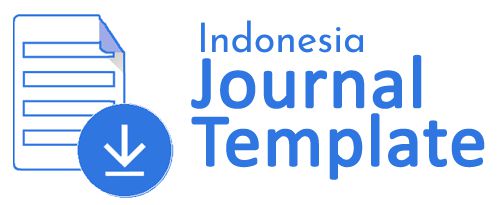The Contribution of Islamic Education in Shaping the Social Awareness of the Digital Literate Community
Kontribusi Pendidikan Islam dalam Membentuk Kepedulian Sosial Masyarakat Literasi Digital
DOI:
https://doi.org/10.64344/fydh.v1i1.8Keywords:
Islamic Education, Social Awareness, Digital Literate CommunityAbstract
The development of information technology has given birth to a digital literate community that is active in virtual spaces, but it is not uncommon to experience degradation of social awareness due to the flow of unfiltered information. This research aims to reveal the contribution of Islamic education in shaping and improving the social awareness of the digital literate community. This research uses a descriptive qualitative approach with data collection techniques through observation, interviews, and documentation of digital literate community members involved in digital platform-based Islamic education activities. The results show that digital based Islamic education has a significant impact on increasing social values such as tolerance, ethics in interacting online, and concern for social issues. Platforms such as YouTube, Instagram, and podcasts have proven effective in delivering Islamic content that has an impact on changes in community behavior, including increased tolerance, reduced spread of negative content, and active participation in online and offline social activities. Thus, Islamic education has an important contribution in building sustainable social awareness in the midst of a digital literate community, and is able to become a constructive alternative in facing the social challenges of the digital era.
References
Aldi, Muhammad, Fatimah Azzahra, Muhammad Aminullah, and Samsul Susilawati. 2025. “Optimizing the Learning Process through Theory-Based Media Selection: Constructivist, Cognitive, Collaborative, and Motivational Perspectives.” Electronic Journal of Education, Social Economics and Technology 6(1).
Aldi, Muhammad, and Ahmad Barizi. 2025. “Filsafat Ilmu Dalam Perspektif Budaya Alam Minangkabau: Membangun Kearifan Lokal Untuk Pengembangan Pengetahuan.” Teaching and Learning Journal of Mandalika (Teacher) e-ISSN 2721-9666 6(1):212–21.
Aldi, Muhammad, and Akhmad Nurul Kawakib. 2025. “Reconstruction of Islamic Education Philosophy in Minangkabau Customary Values: Actualizing the Principles of Adat Basandi Syarak, Syarak Basandi Kitabullah.” JIIP-Jurnal Ilmiah Ilmu Pendidikan 8(2):1548–57.
Aldi, Muhammad, and Retisfa Khairanis. 2024. “The Synergy of Religion and Malay Culture in Improving the Empowerment of Islamic Communities Towards Achieving SDGS.” PERADA 7(2).
Aldi, Muhammad, and Moh Toriquddin. 2025. “History of Thought Syuhudi Ismail: A Study of Textual and Contextual Analysis of Prophetic Hadiths.” J-CEKI: Jurnal Cendekia Ilmiah 4(2):1723–32.
Chen, Keren, Shenghan Zhao, Gaozhe Jiang, Yafeng He, and Hui Li. 2025. “The Green Innovation Effect of the Digital Economy.” International Review of Economics & Finance 99:103970.
Khairanis, Retisfa, and Istiadah Istiadah. 2025. “The Impact of Post-Potivism and Constructivism on Public Policy: A Review of Philosophy of Science in Indonesia.” J-CEKI: Jurnal Cendekia Ilmiah 4(2):2101–8.
Khairanis, Retisfa, Ahmad Kholil, and Wildana Wargadinata. 2025. “Political Dynamics of the Mughal Empire: An Integrated Historical Analysis.” J-CEKI: Jurnal Cendekia Ilmiah 4(2):1907–17.
Khairanis, Retisfa, Neli Putri, and Rahmat Satria Dinata. 2023. “The Correlation Between Grammar Mastery And Reading Ability.” Pp. 554–64 in.
Kusumastuti, Adhi, and Ahmad Mustamil Khoiron. 2019. Metode Penelitian Kualitatif. Lembaga Pendidikan Sukarno Pressindo (LPSP).
Liu, Shiyu, Jingru Ma, Meichen Sun, Chao Zhang, Yujing Gao, and Jinghong Xu. 2025. “Mapping the Landscape of Digital Health Intervention Strategies: 25-Year Synthesis.” Journal of Medical Internet Research 27:e59027.
Luo, Qi, Lisha Deng, Zeming Zhang, and Hao Wang. 2025. “The Impact of Digital Transformation on Green Innovation: Novel Evidence from Firm Resilience Perspective.” Finance Research Letters 74:106767.
Luthfi, Atabik. 2025. “DYNAMICS OF ISLAMIC STUDIES IN THE DIGITAL ERA BETWEEN CHALLENGES AND OPPORTUNITIES.” Al-Risalah: Jurnal Studi Agama Dan Pemikiran Islam 16(1):109–18.
Naswa, Naila Hanin. 2025. “Islamic Education Strategies in Strengthening Character Education to Overcome Moral Challenges in the Digital Era.” Solo Universal Journal of Islamic Education and Multiculturalism 3(01):93–104.
Wang, Shaofeng, and Hao Zhang. 2025. “Digital Transformation and Innovation Performance in Small-and Medium-Sized Enterprises: A Systems Perspective on the Interplay of Digital Adoption, Digital Drive, and Digital Culture.” Systems 13(1):43.
Wang, Xiangyang, Zhiyi Liu, and Xuefei Lei. 2025. “How Digital Orientation Promotes Digital Process Innovation from the Perspectives of Knowledge and Capability: Evidence from China.” Journal of Knowledge Management 29(1):259–80.
Downloads
Published
Issue
Section
License
Copyright (c) 2025 Retisfa Khairanis, Muhammad Aldi (Author)

This work is licensed under a Creative Commons Attribution-NonCommercial-ShareAlike 4.0 International License.







